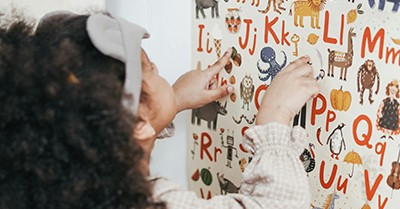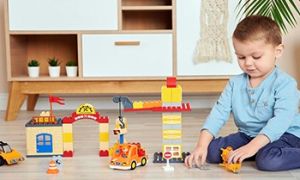In early childhood education, the decision to defer a child’s school entry by a year is often framed as “staying back.” But educators across Australia are challenging this language, advocating instead for a strengths-based perspective: sending children when they are developmentally ready.
Why Deferral Deserves Consideration
Deferring school entry isn’t about holding children back—it’s about giving them time to grow. Research and educator experience suggest that an additional year in a play-based, relational learning environment can:
-
Support emotional regulation and social confidence
-
Strengthen communication and self-advocacy skills
-
Allow mastery of foundational cognitive and motor skills
-
Foster resilience and trust in their own capabilities
Signs a Child May Benefit from Deferral
Educators suggest looking at the whole child—not just their age. Key indicators include:
-
Emotional readiness: Does the child manage transitions, express feelings, and cope with challenges?
-
Social confidence: Can they initiate play, resolve conflicts, and build relationships?
-
Cognitive development: Are they curious, focused, and able to follow multi-step instructions?
-
Self-trust: Do they show confidence in their choices and learning?
Making the Decision
When considering deferral, families and educators should:
-
Observe the child’s daily interactions and responses to challenges
-
Consult with early childhood educators, allied health professionals, and school readiness experts
-
Reflect on the child’s long-term well-being—not just academic readiness
Resources to Support Decision-Making
- 60 Minutes Australia: Should parents be holding their children back from school?
- Let The Children Play—Winter 2019
- Let The Children Play—Summer 2019
Deferral is not a delay—it’s a deliberate, child-centered choice. As one educator put it, “It’s about sending the child when they are ready.”
Further Reading
How To Approach School Readiness Planning For Preschoolers
School Readiness Program
School Readiness Checklist Aligned To EYLF Outcomes
School Readiness In Early Childhood
How To Prepare Preschoolers For School
How Play-Based Learning Supports School Readiness
Supporting Children's Transition To School
Play School's Ready, Set, Big School







 As an Educator in Australia, your pay rate falls under the Children’s Services Award 2010. This award states the minimum amount that an employer can
As an Educator in Australia, your pay rate falls under the Children’s Services Award 2010. This award states the minimum amount that an employer can When working as a qualified Early Childhood Teacher (with a university degree) within a service, your rate of pay will come from the Educational Services
When working as a qualified Early Childhood Teacher (with a university degree) within a service, your rate of pay will come from the Educational Services When working as a Diploma Qualified Educator your pay rate is from the Children's Services Award 2010. This Award states your minimum rate of pay
When working as a Diploma Qualified Educator your pay rate is from the Children's Services Award 2010. This Award states your minimum rate of pay When working as a Cert 3 Qualified Educator, your pay rate is from the Children's Services Award 2010. This Award states your minimum rate of
When working as a Cert 3 Qualified Educator, your pay rate is from the Children's Services Award 2010. This Award states your minimum rate of Educational Leaders play a crucial role in their early childhood service by ensuring that the educational program aligns with best practices and supports the holistic
Educational Leaders play a crucial role in their early childhood service by ensuring that the educational program aligns with best practices and supports the holistic In early childhood education and care, ratios are more than a technicality—they are a frontline safeguard. Every child deserves responsive supervision, emotional connection, and developmental
In early childhood education and care, ratios are more than a technicality—they are a frontline safeguard. Every child deserves responsive supervision, emotional connection, and developmental Here’s a comprehensive Mobile Phone and Smart Watch Policy tailored for early childhood education and care (ECEC) services in Australia, aligned with the latest 2025
Here’s a comprehensive Mobile Phone and Smart Watch Policy tailored for early childhood education and care (ECEC) services in Australia, aligned with the latest 2025 With the new national child safety reforms kicking in on 1 September 2025, early childhood services like yours have a real opportunity to lead the
With the new national child safety reforms kicking in on 1 September 2025, early childhood services like yours have a real opportunity to lead the The Sea of Fish Challenge is a national initiative that invites children, educators, families, and communities to create and display fish artworks as a symbol
The Sea of Fish Challenge is a national initiative that invites children, educators, families, and communities to create and display fish artworks as a symbol Across the early childhood education and care sector, educators are sounding the alarm: current staffing ratios are insufficient to deliver safe, meaningful, and developmentally appropriate
Across the early childhood education and care sector, educators are sounding the alarm: current staffing ratios are insufficient to deliver safe, meaningful, and developmentally appropriate


